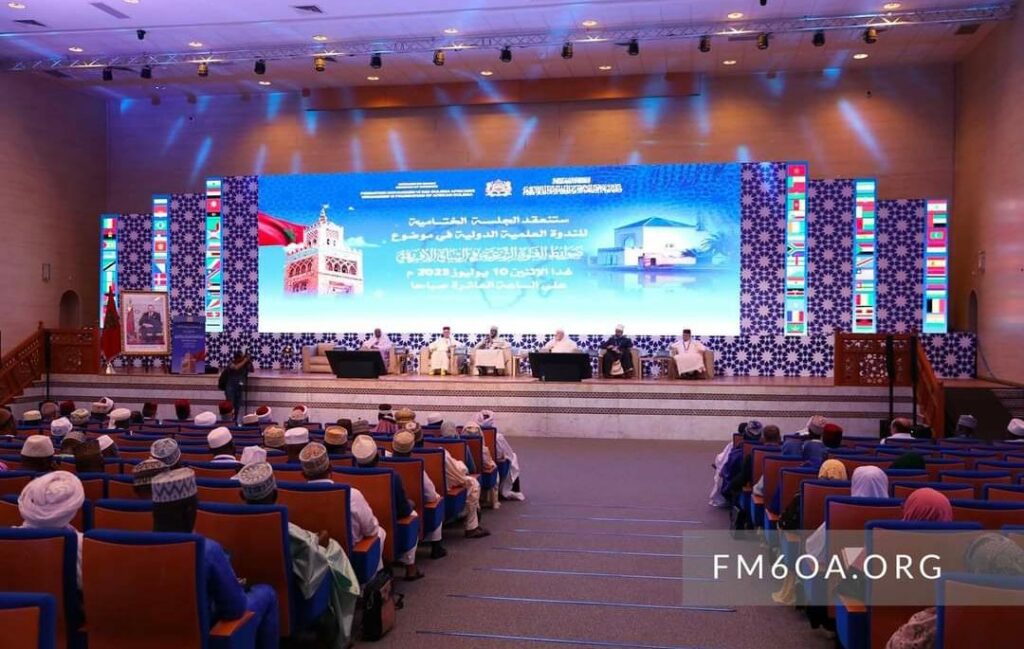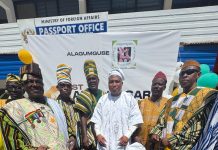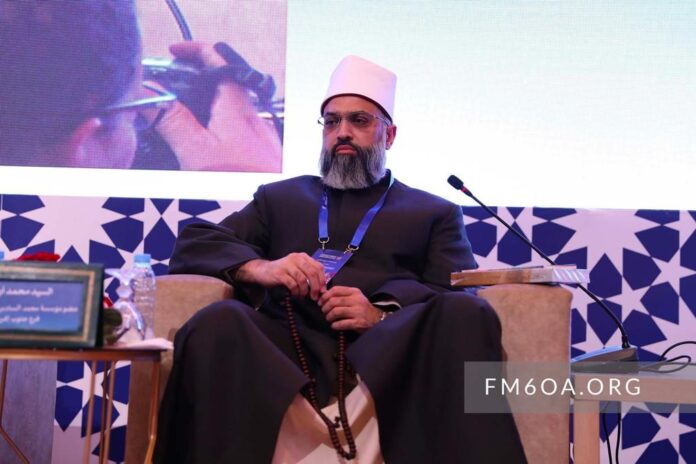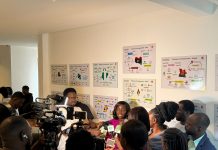International conference on the Fatwa, the official interpretation or ruling on a matter of Islamic law issued by a certified legal expert known as a mufti. In response to inquiries from people or Islamic tribunals, fatwas are typically issued.
The Moroccan King Mohammed VI Foundation for African Oulema, which was founded 8 years ago, organized the symposium as part of the schedule for a three-day conference on Fatwa that took place from July 8 to July 10, 2023, in Marrakech.
The General Secretary of the South African Branch of the Mohammed VI Foundation for African Oulema, Shaykh Arshad Mohamed Al-Azhari Al Ba-Alawi appreciated the symposium’s excellence in his contribution. He praised the topic and content as well as the wonderful ideas that were shared.
He attributed the fact that issues of fatwa are being discussed to the fact that many Muslims are realizing there are shortcomings in that a one-size-fits-all approach should not be adopted and that various factors especially customs and circumstances particular to each community should be taken into consideration when issuing fatwas.

Efforts like these are the first step in correcting any shortcomings in this process. We must work to increase our knowledge and our diligence when it comes to issuing jurisprudential edicts and fatwas.
Moreover, the conference was crucially essential and predicted many attendees would return home and try to put what they have learnt into practice. Personally, I have some ideas that I’ll bring back to South Africa and implement in the near future to enhance what we do at home. I’ve written down a few ideas that I’ll put into practice in the next two to six months.
However, regard to recommendations, I believe one should first applaud the Foundation for the admirable work it does in order to improve understanding of the Oulema of Africa. May Allah bless King Mohammed VI of Morocco for establishing the Foundation and for having the vision and wisdom to do so.
Further, it’s stunning to witness His Majesty King Mohammed VI’s central position in Morocco and the way that he has brought the nation together to pursue a single set of goals.
South Africa is not void of extremism, but South Africa is a democratic country that allows Muslims to practice their religion without any fear or prejudice.
It is our responsibility to, as bearers of a moderate Islam, promote peaceful co-existence and ensure that any form of extremism is called out for what it is and declare that Islam is free from such interpretations. This is the role of the Foundation.
Moderation is therefore essential for success, and there is undoubtedly a difference between merely learning about sharia and later evolving into a person with a juristic mind and the ability to apply that knowledge and jurisprudence to reality.
More so, the knowledge of “Fiqh al waqi” as it relates to reality application of the split desk of our own reality This reality varies from person to person because it depends on their unique cultures if what we consider as acceptable in one society is also acceptable in another.
It is crucial for us to be able to distinguish between the aspects of culture that fall within the Sharia’s protection and encouragement and those that do not, so that we can determine which aspects of culture the Sharia does not support or encourage. Another possibility is that a custom from the person’s culture falls within sharia and is accepted by Islam if it is modified slightly.
The discussion between the oulema, the jurists, and the muftis is another significant thing that emerged from the conference. It’s advantageous when they speak since they share their experiences and they learn from one another’s experiences.
Morocco’s system of issuing fatwas is unique in that it does not involve a single person; rather, local jurists and scholars work together to issue the fatwas, and a decision is made after discussion.
Following a thorough examination of the ruling, the circumstances, the rules pertaining to the expects, and a discussion, a conclusion was reached in accordance with Islamic law on the subject.
The role that women are playing in the fields of Fatwa and Oulema is also quite pleasing to observe, and we place an ever-increasing emphasis on women’s education, comprehension, and participation in these projects in Morocco. In many cultures, women’s roles are viewed as secondary and distant to those of women who contribute to the growth of their communities.
The symposium discussed Fatwa under various themes. They include, among others “Introduce the science of issuing Fatwa and the connection with sharia provisions; Highlight the status of Fatwa in Islamic sciences; Provide guidance on how to protect sharia-related Fatwas from extremist ideology.










































